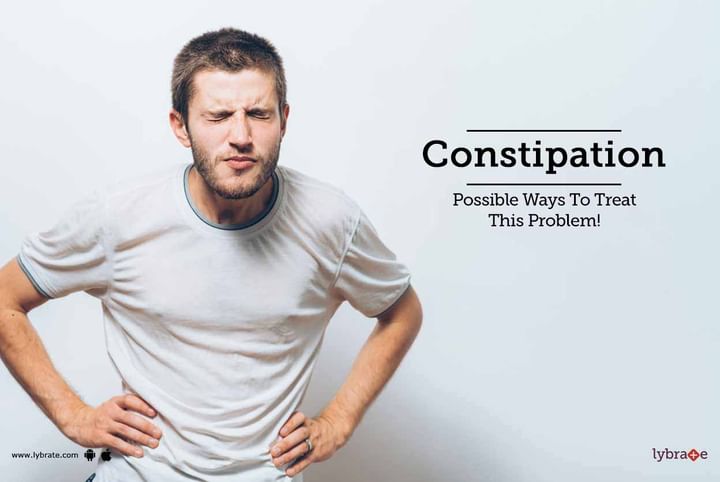Constipation - Possible Ways To Treat This Problem!
Constipation is referred to difficult or infrequent or dry bowel movements, the passage of hard and small amounts of stool. The common symptoms of constipation are feeling bloated, sluggish, and uncomfortable. It can be acute or chronic. Acute constipation can occur suddenly and is noticeable, whereas chronic constipation begins gradually and might persists for months and/or years. At one time or another, every individual might get constipated. The reason being poor diet and lack of exercise.
Causes:
Constipation is caused due to the formation of hard and dry stools that occurs as the colon absorbs too much water from the diet or if the muscles of colon contracts slowly or very sluggishly, causing stools to move very slowly. The causes of constipation are listed below:
- Low fiber diet, the most common cause of constipation.
- Not drinking enough water and other fluids
- Lack of exercise
- Some medications can cause constipation, such as painkillers, antacids, blood pressure medicines, iron supplements, anticonvulsants, etc.
- Irritable bowel syndrome
- Ignoring the urge to have a bowel movement
- Overuse of laxatives
- Several diseases might cause constipation, such as neurological disorders, metabolic and endocrine disorders, and systemic conditions affecting organ system.
- Problems with colon, rectum or with intestinal functions
- Warning signs of constipation include swollen abdomen, vomiting, weight loss, and blood in the stool. When one observes any or all of these, then they should immediately consult a doctor for medication.
Treatment:
- Constipation can be best treated with a combination of high fiber diet, exercise and adequate intake of liquids.
- Dietary changes that one should make to treat or prevent constipation is to consume fiber-rich diet. You should include fruits and vegetables in your diet plan. Eat whole cereals that contain bran. Start slowly and gradually increase the amount of fiber to avoid bloating and gas formation. Drink enough water and liquid.
- Apart from dietary changes, use of laxatives and enemas is also approached that are taken to treat constipation.
- Types of laxatives are bulking agents, stool softeners, osmotic agents, and stimulants.
- Bulking agents are bran, polycarbophil, psyllium, and methylcellulose. The side effects include bloating, flatulence, and poor iron and calcium absorption. The bulking agents, add bulk to the stools and absorbs water. Bulking agents acts slowly and thus are the safest way to promote regular bowel movements.
- Stool softeners act slowly to soften the stools and thus bowel movements is made easy. These slightly increase the bulk of stools and stimulate natural contractions of large intestines and thus makes evacuation of stools easy.
- Osmotic agents are those that pull a large amount of water into large intestines, and as a result, stools are softened and loose for easy evacuation. The excess fluid in large intestines stimulates contractions.
- Stimulant laxatives contain irritating substances that stimulate the walls of large intestines to contract and pass the stool.
- Enemas function is to mechanically flush the stool from the rectum and lower part of large intestine. Plain water (slightly warm) is considered as best fluid to be used as an enema.
Can constipation be serious or complicated?
Constipation can sometimes be serious and complicated. The complications are hemorrhoids or anal fissures. These conditions lead to rectal bleeding. Constipation may cause hard stools to pack the rectum and intestine tight enough that prevents normal pushing of the bowel. This condition is called fecal impaction. Diverticular disease is another complication.
People who are over concern with regular bowel movements may abuse their bowel movements with the use of laxatives, suppositories, and enemas. Thus, overuse of these can actually inhibit bowel’s natural and normal contractions and worsen constipation.
Thus, constipation is a serious issue to be looked upon.



+1.svg)
